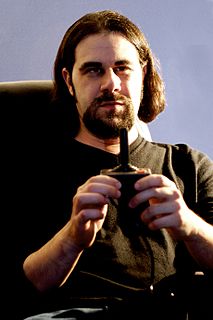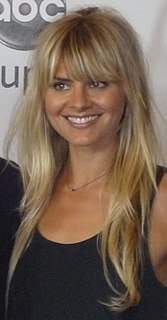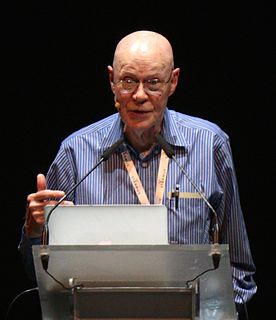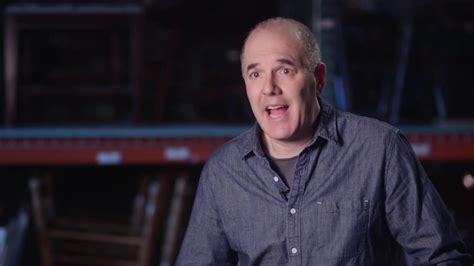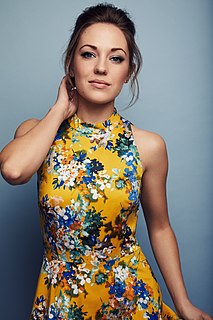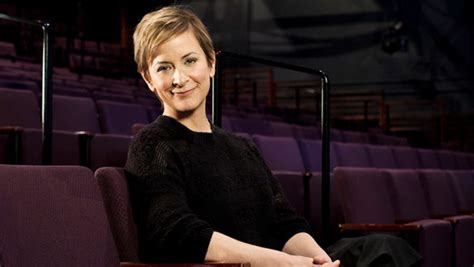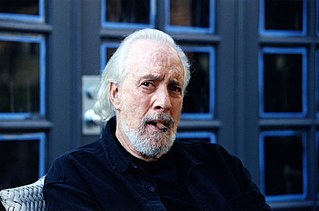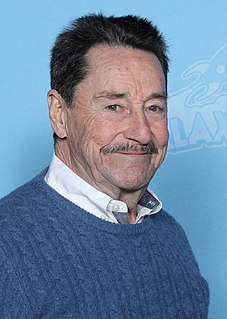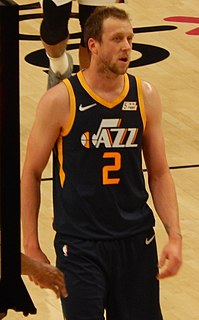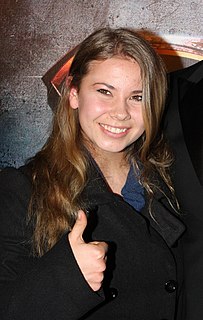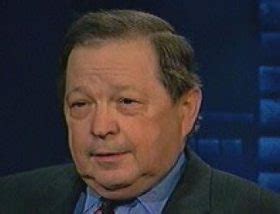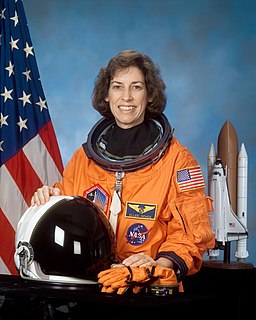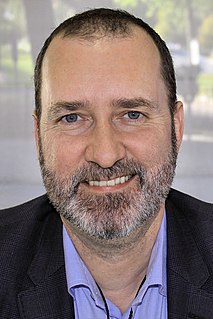Top 1055 Math Quotes & Sayings - Page 15
Explore popular Math quotes.
Last updated on December 4, 2024.
I attended a high school with more than 4,000 students and met with a guidance counselor only once during my four-year stint. Despite my clear strengths in science and math, my counselor's advice was to pursue a degree in business. A career in engineering was never encouraged nor, in fact, ever mentioned.
Fashion is not just about what we wear, but...fashion is also a business. It is an art, it's a career that involves science, engineering, accounting and so much more. People can learn about the math behind Charles James' designs, and think, 'Maybe I should pay closer attention to geometry this semester'
We live today in a world where most of the really important developments in everything from math and physics and astronomy to public policy and psychology and classical music are so extremely abstract and technically complex and context-dependent that it's next to impossible for the ordinary citizen to feel that they (the developments) have much relevance to her actual life.
I know we can all remember the days of sitting in algebra class asking ourselves, 'why will I need algebra or chemistry in the future?' The answer was and still remains that advanced math and science classes help high school students develop their analytical and cognitive skills and better prepare them to compete in college and the workplace.
I was very disruptive. I was horrible. I didn't learn like all the other kids. I had to sometimes take my tests out in the hallways because I couldn't focus. But, my teachers would come see me in the plays and were like 'I don't understand how you can focus and be in the moment in a play and you go into math class and you can't focus.'
I loved school, was an exceptional student, and found a passion for math and science that led me to Vanderbilt University, where I discovered the world of electrical engineering. I did well in college, loved the work I was doing, and soon found myself climbing the corporate ladder after graduation. I was one of the lucky ones.
You need virtual reality to understand high level science or high level math. It's very helpful to explain third and fourth dimensional things that people are constantly addressing in quantum physics. But, as soon as you're creating an avatar, and you can live and you can start to feel sensations on VR, that has gone too far.
My high school career was undistinguished except for math and science. However, having barely been admitted to Rice University, I found that I enjoyed the courses and the elation of success and graduated with honors in physics. I did a senior thesis with C.F. Squire, building a regulator for a magnet for use in low-temperature physics.
America ranks 21st when it comes to math education. We rank 25th when it comes to science. We used to be number one in the proportion of college graduates. We now rank ninth. And at an age where knowledge, skills, are the determinant of how successful we're going to be, unless we reverse that we're going to keep slipping behind economically to a lot of other countries.
You can't. Do you hear me? You think you've figured something out? You run over here so pleased with yourself because you changed your mind. Now you're certain. You're so... sloppy. You don't know anything. The book, the math, the dates, the writing, all that stuff you decided with your buddies, it's just evidence. It doesn't finish the job. It doesn't prove anything.
I was a good novice teacher, but I did the things that were obvious. I stayed for lunch for extra tutoring, gave kids my cell phone, and was available. In my first year of teaching, I ended up doubling the math time that a conventional school would have. But I don't think any of these things were path-breaking or unusual.
I think talent has a huge amount to do with concentration, concentration rather than the athletic ability of your neurons. If you can concentrate on an esoteric piece of math, how can you think about the rest of your life? That's why people can leave their car keys in the gutter; they're in the midst of obsession and concentration.
From the late '70s to the early '90s, I wrote anything anybody would pay me for. This ranged from articles on how to clean a longhorn cow's skull for living-room decoration to manuals on elementary math instruction on the Apple II... to a slew of software reviews and application articles done for the computer press.
What makes screenplays difficult are the things that require the most discipline and care and are just not seen by most people. I'm talking about movement - screenwriting is related to math and music, and if you zig here, you know you have to zag there. It's like the descriptions for a piece of music - you go fast or slow or with feeling. It's the same.
Let's be clear about what Common Core is. It spells out what students should know at the end of each grade. The goal is to ensure that our students are sound in math and literacy and that our schools have some basic consistency nationwide. But the standards do not dictate a national curriculum, and teachers are not told how or what to teach.
I think about things like the fact that nobody knows what time is. Time is what? Nobody can describe it, even physics or math or anything else. But it is what we continuously experience. It's the state of our unfolding, in a way, and in that sense that the continuous reopening of reality is what I think of as, perhaps, a worldview.
I'm always involved with the Aerospace Program and NASA and Goddard Space Flight Center. And if kids feel so inclined, they can log onto NASA and the Optimus Prime Spinoff Award, which we present every year to some of the brilliant young minds that are taking up into the academics of space, science, technology, math.
Especially girls, but any kids exposed to music programs and arts programs do much better on their tests. They have a better chance of going to college. They can focus better. You know, we're not just automatons learning how to work machines and do engineering and math and science. All of that's great, but you've got to build a whole person.
Math . . . music .. . starry nights . . . These are secular ways of achieving transcendence, of feeling lifted into a grand perspective. It's a sense of being awed by existence that almost obliterates the self. Religious people think of it as an essentially religious experience but it's not. It's an essentially human experience.
If somebody is working on a new medicine, computer science helps us model those things. We have a whole group here in Seattle called the Institute for Disease Modelling that is a mix of computer science and math-type people, and the progress we're making in polio or plans for malaria or really driven by their deep insights.
I was very disruptive. I was horrible. I didn't learn like all the other kids. I had to sometimes take my tests out in the hallways because I couldn't focus. But, my teachers would come see me in the plays and were like "I don't understand how you can focus and be in the moment in a play and you go into math class and you can't focus."
When I was in 7th grade, we were all given an exam. It was science and math, and the boys who did well were skipped ahead so that when they got to be juniors or seniors in high school they would be able to go to the local community college and take calculus and physics there. And I wasn't skipped ahead.
BERTRAND RUSSELL, The Philosophy of Logical Atomism We've associated that word philosophy with academic study that in its own way has gotten so far beyond the layman that if you read contemporary philosophy you've no clue, because it's almost become math. And it's odd that if you don't do that and you call yourself a philosopher that you always get 'homespun' attached to it.
My algebra was relatively poor. I found it very difficult to use equations that substituted numbers - to which I had a synesthetic and emotional response - for letters, to which I had none. It was because of this that I decided not to continue math at Advanced level, but chose to study history, French and German instead.
Music is such an incredible tool for kids in general. They learn discipline; they learn how to express themselves. You learn math. You learn language. It's the ideal teaching tool, and that's why it's mind-boggling when any school superintendent decides that music is something we can kind of do without.
I appreciate and enjoy mathematics and science and all that side of things. I definitely have that side of me even though I'm not by any means an expert, but I love reading about physics and math and that kind of stuff. I wish I knew more than I did. I mean, I read books written for laymen, not textbooks or anything.
You know there's always that kid in your class — and every class has one — the kid who draws all the time and is really good? That was not me. I was a lousy draftsman. But as soon as I figured out that I could make things come alive, like using the corners of my math book to make flipbooks, I was hooked.
